Japanese Strolling Garden with a Large Pond - Landscaping (2021)

An authentic Japanese strolling garden around a pond at home
We would like to present one of our most ambitious Japanese garden projects yet: A large Japanese strolling garden around a pond for a home in Belgium. During our initial visit to the location, our customers told us about their wishes and showed as a mood board featuring some of the most beautiful gardens from Japan. We immediately knew that this was going to be a very special and elaborate project.
The extensive design we created was received with much enthusiasm, and the construction of the garden was immediately planned. Building the garden started with creating the iris pond in the center with a meandering stream coming from the east. First, a pit was excavated, which was followed by isolating the excavated area to ensure the water remained in its intended spot. Once this was done, the water was added.
Concurrent with the pond's construction, various Japanese ornaments were placed in their designated spots throughout the garden. These included a large Kasuga lantern, Yukimi lantern, and a Ginkaku-ji Chōzubachi for the Tsukubai arrangement. Additionally, beautifully cloud-pruned Japanese pine trees, maple trees, and azaleas were carefully planted.
Another notable feature is the Koshikake built by our team of talented woodworkers. Traditionally an essential part of the tea garden, the Koshikake is, above all, a roofed bench that offers a great view of the garden. It provides a cozy space to enjoy the landscape, sheltered and protected from the weather.
Our acclaimed landscaper Mizuno-san played a crucial roll during this project. He is renowned for skillfully crafting Nobedan paths in the Japanese garden. Nobedan paths or Nobedan Kō (延段行) are carefully assembled using various shapes and sizes of granite pieces, resembling a jigsaw puzzle. In our Nobedan paths, we particularly favor the inclusion of antique millstones. Their distinct round shapes complement the other granite pieces, enhancing the overall authenticity and contributing to the Wabi-Sabi aesthetic, a common practice in Japanese gardens.


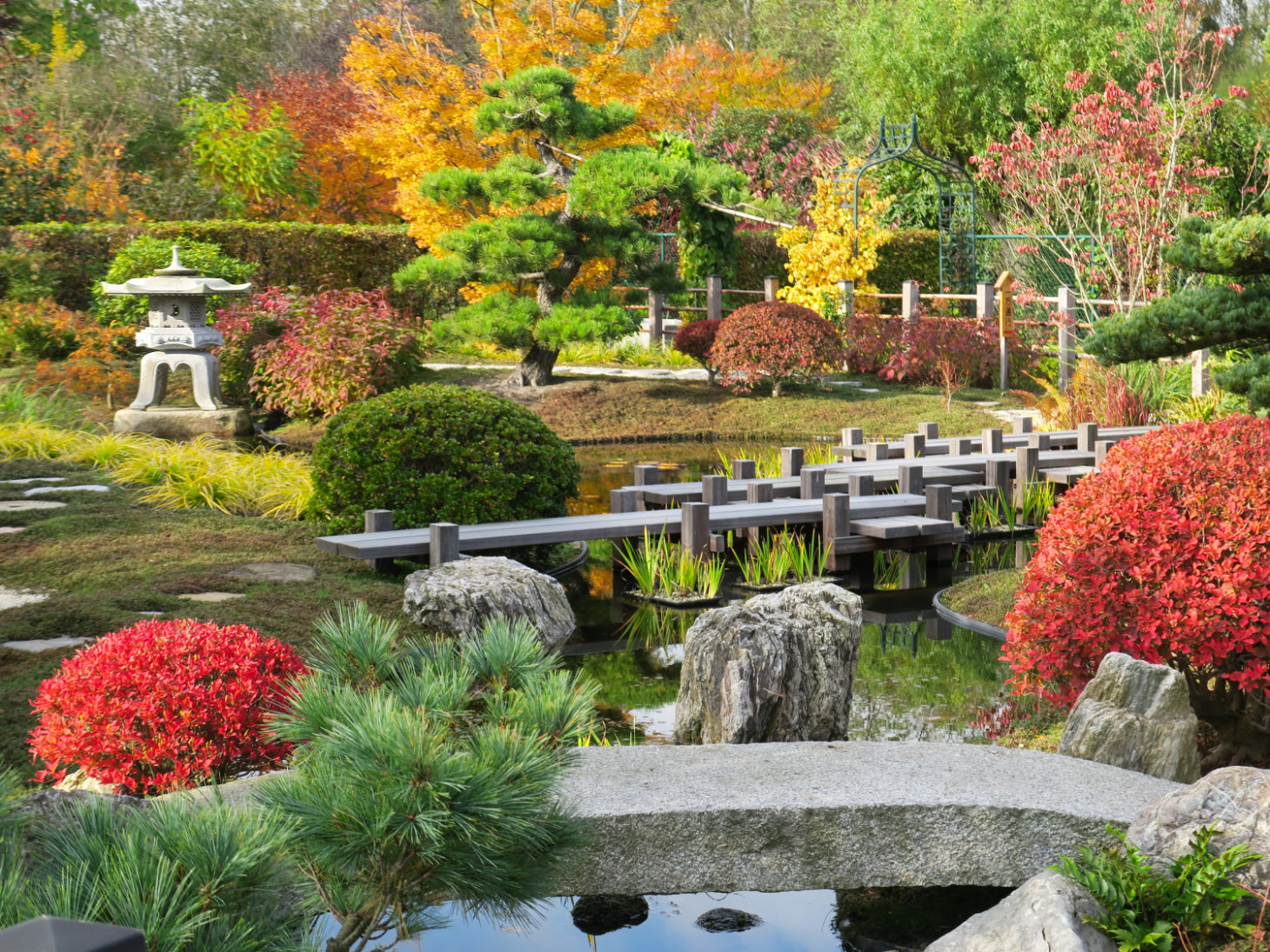
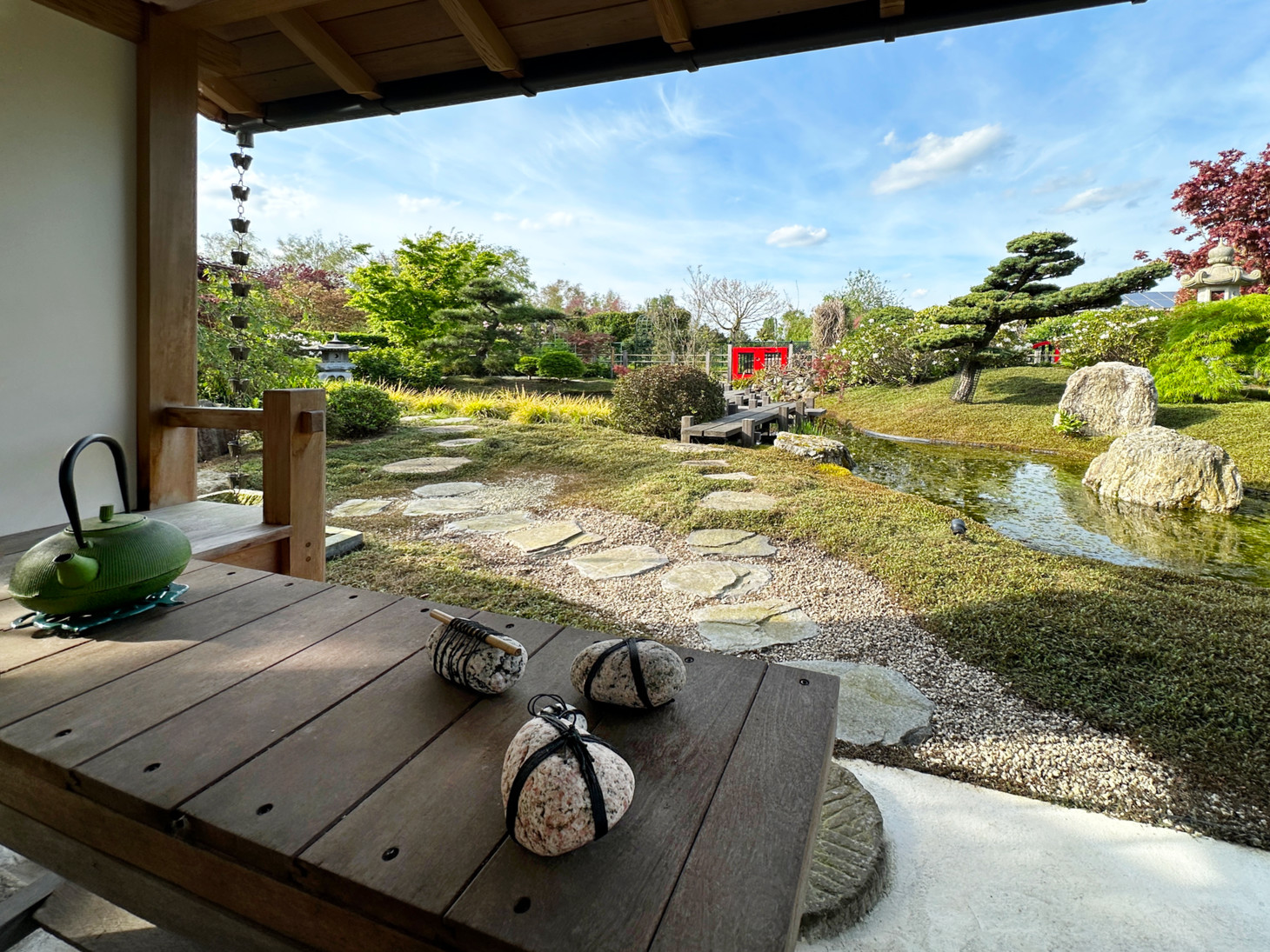
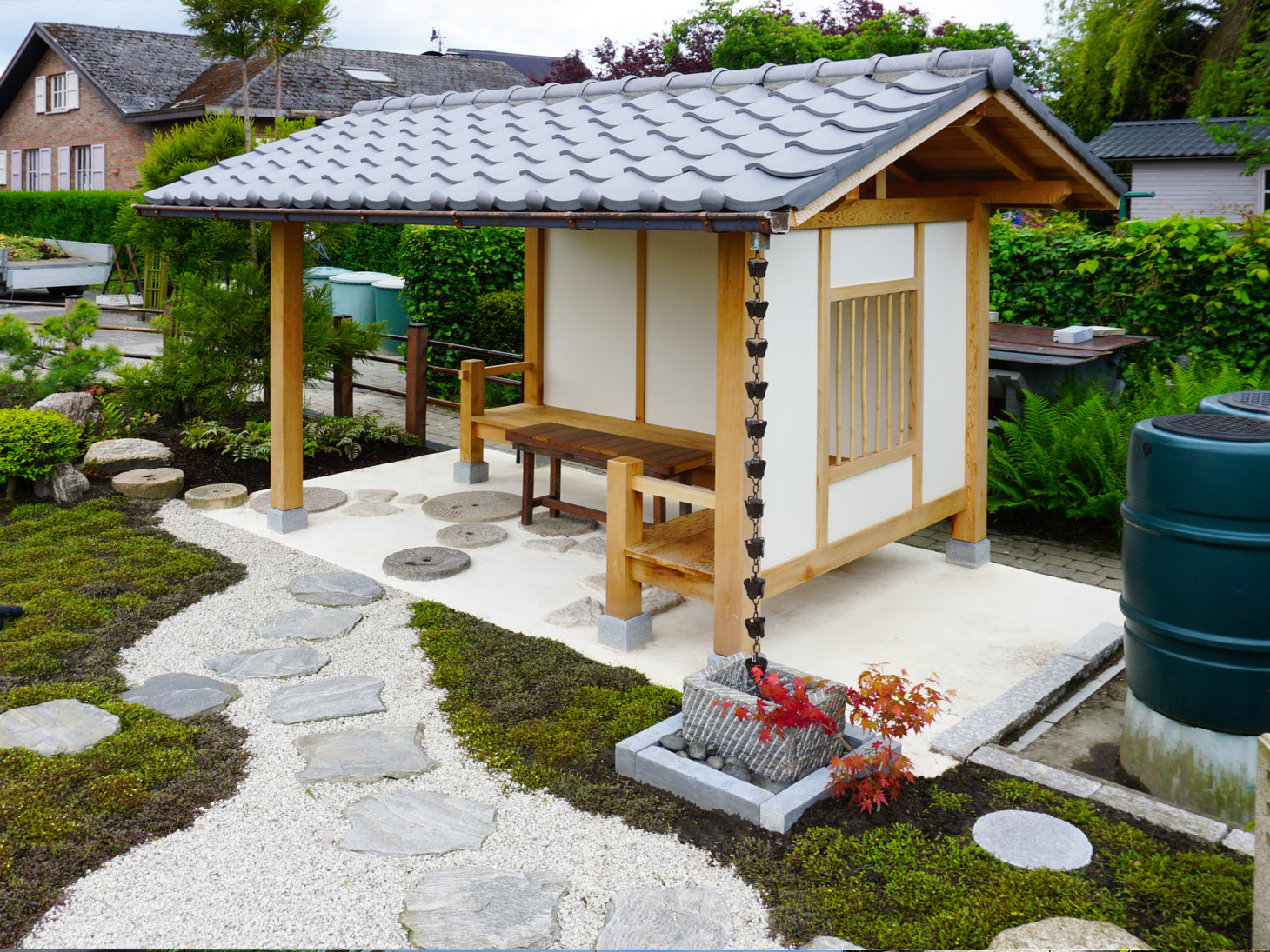
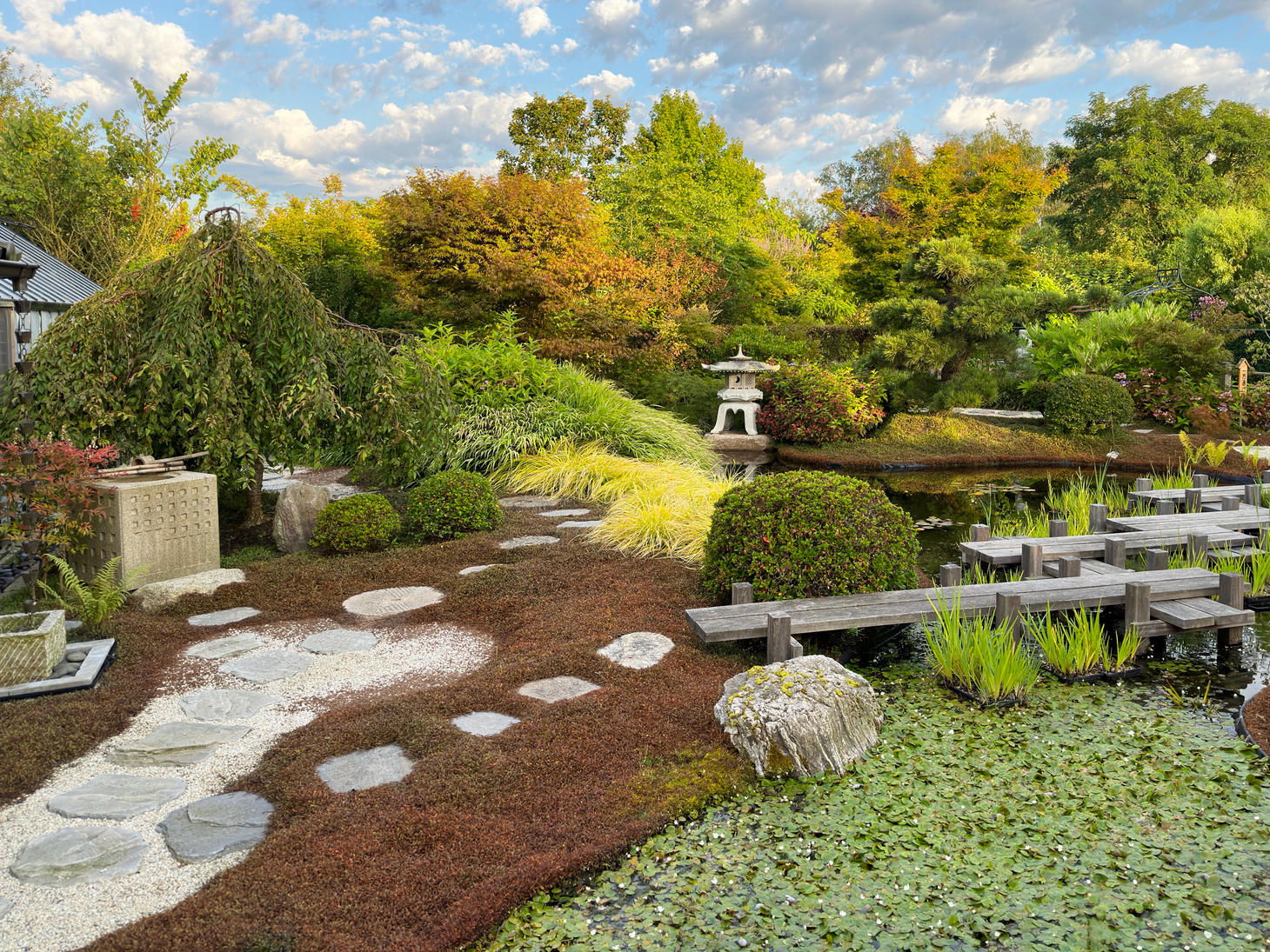
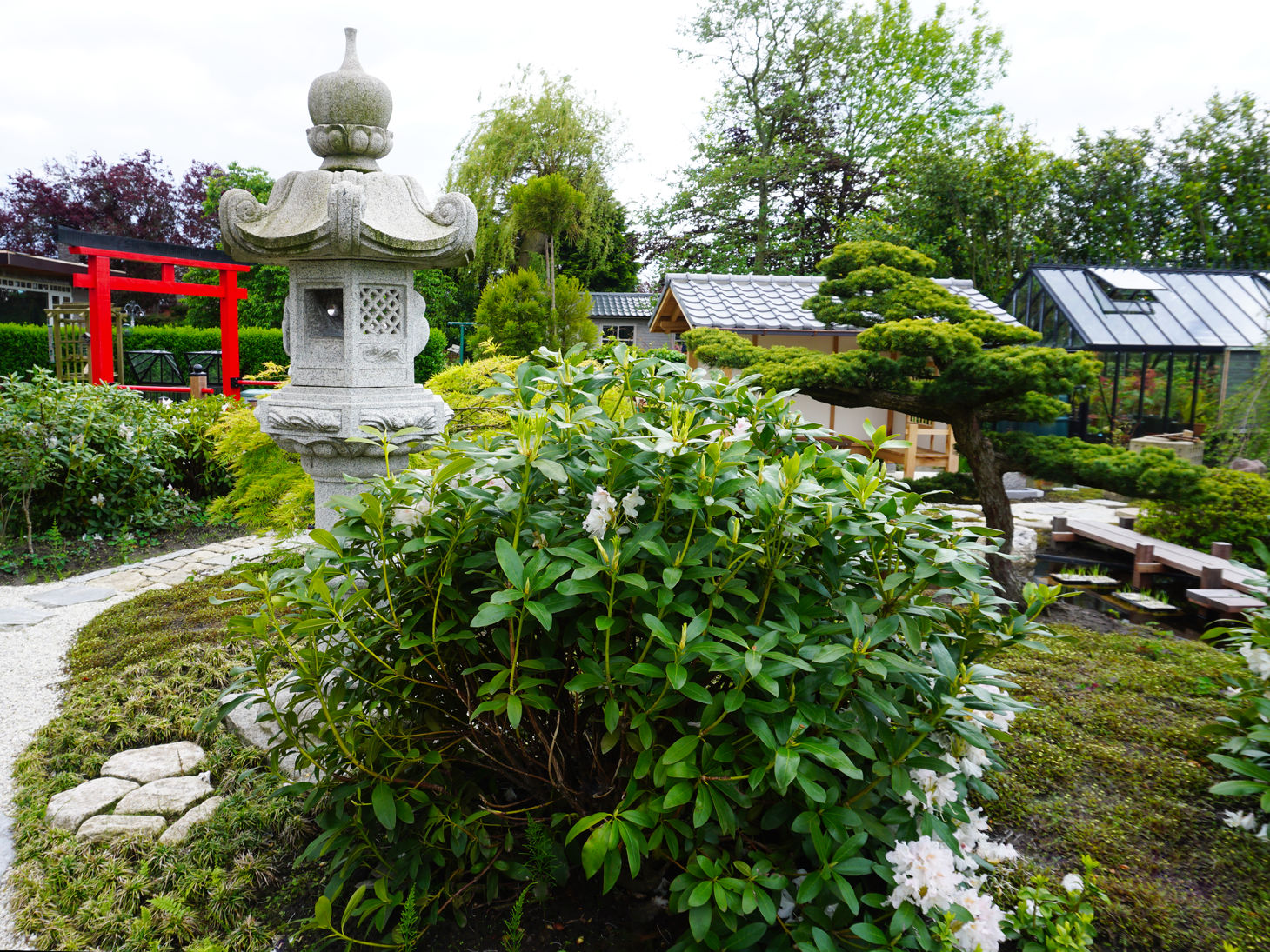
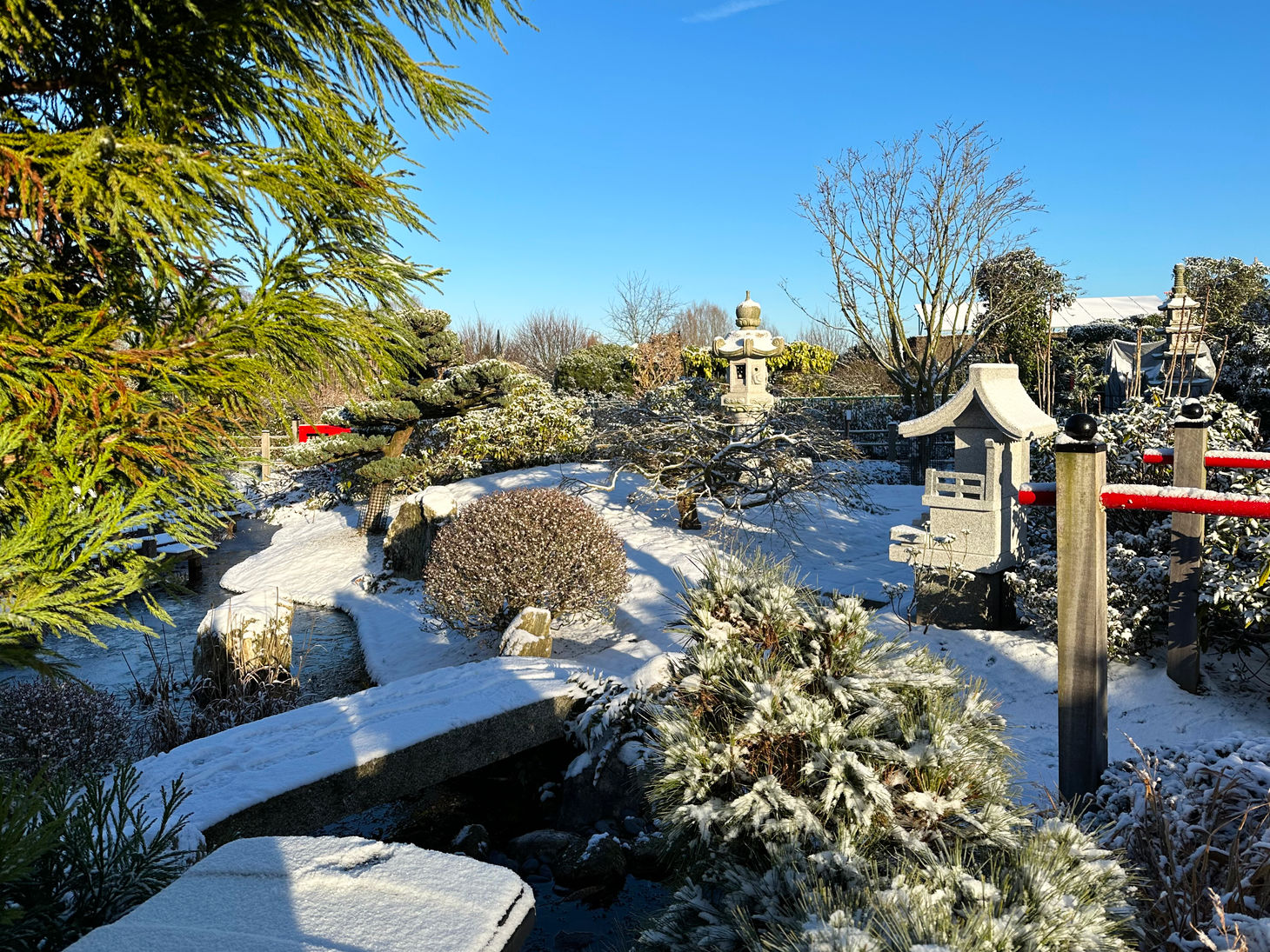
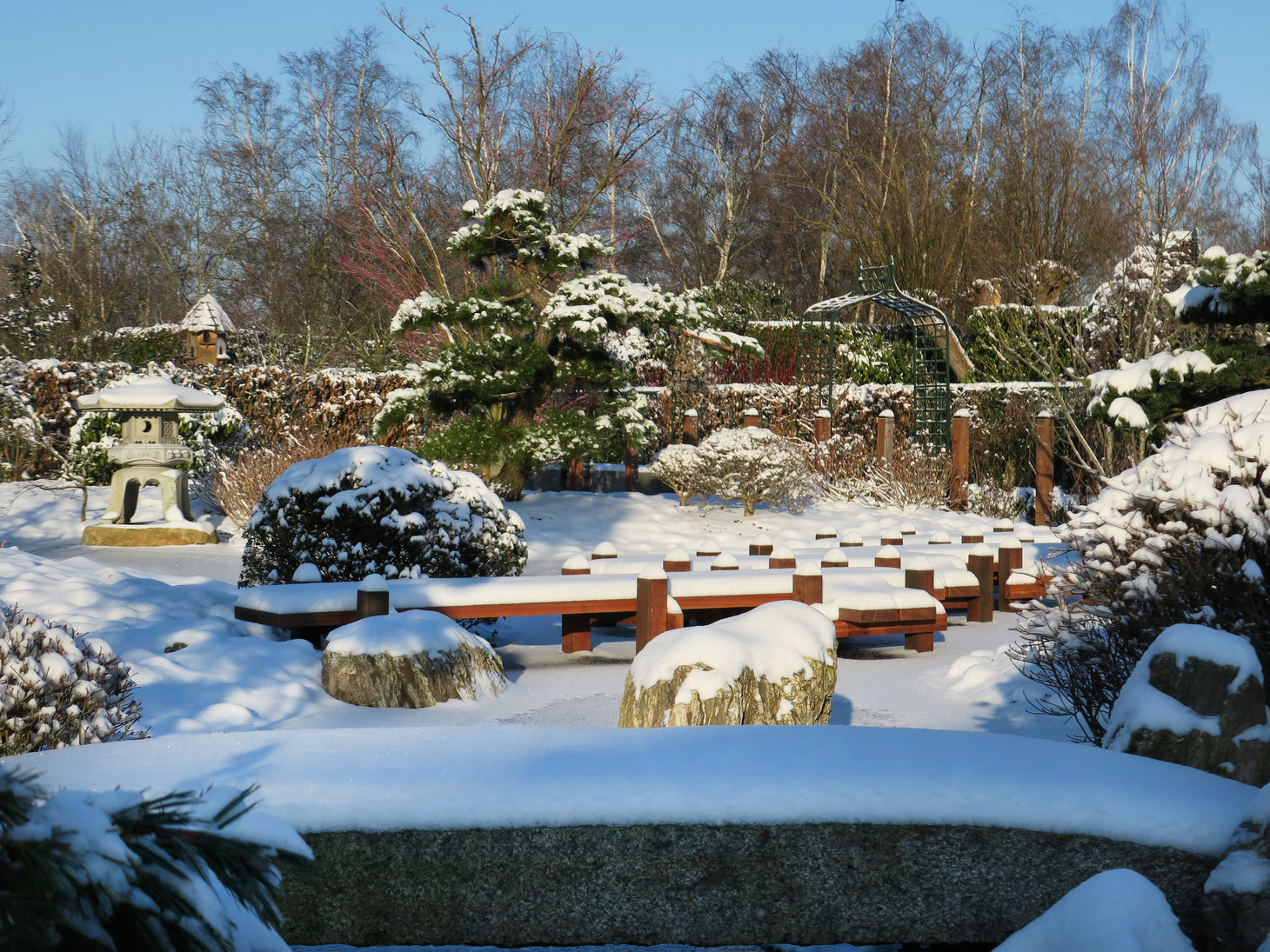
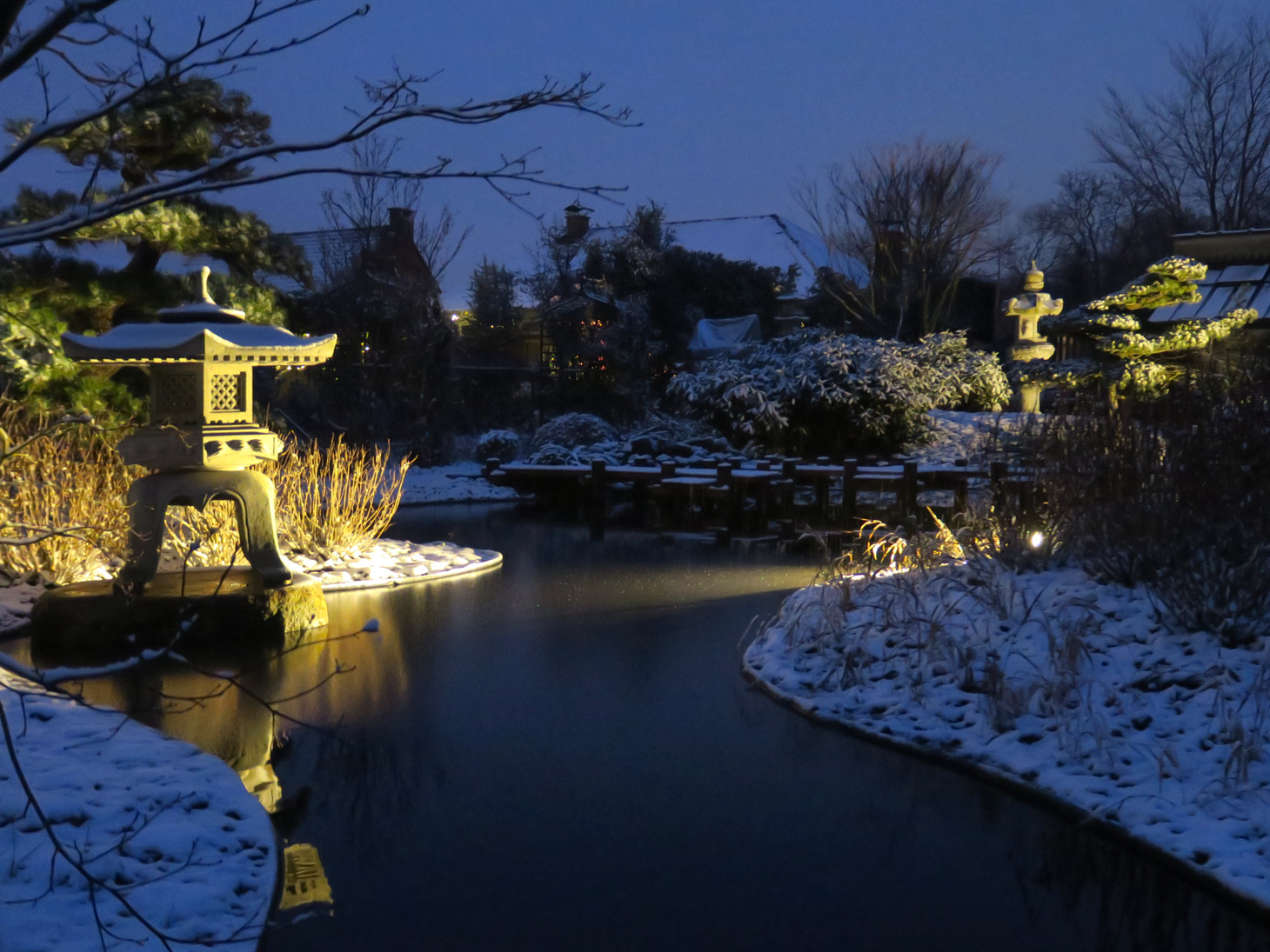
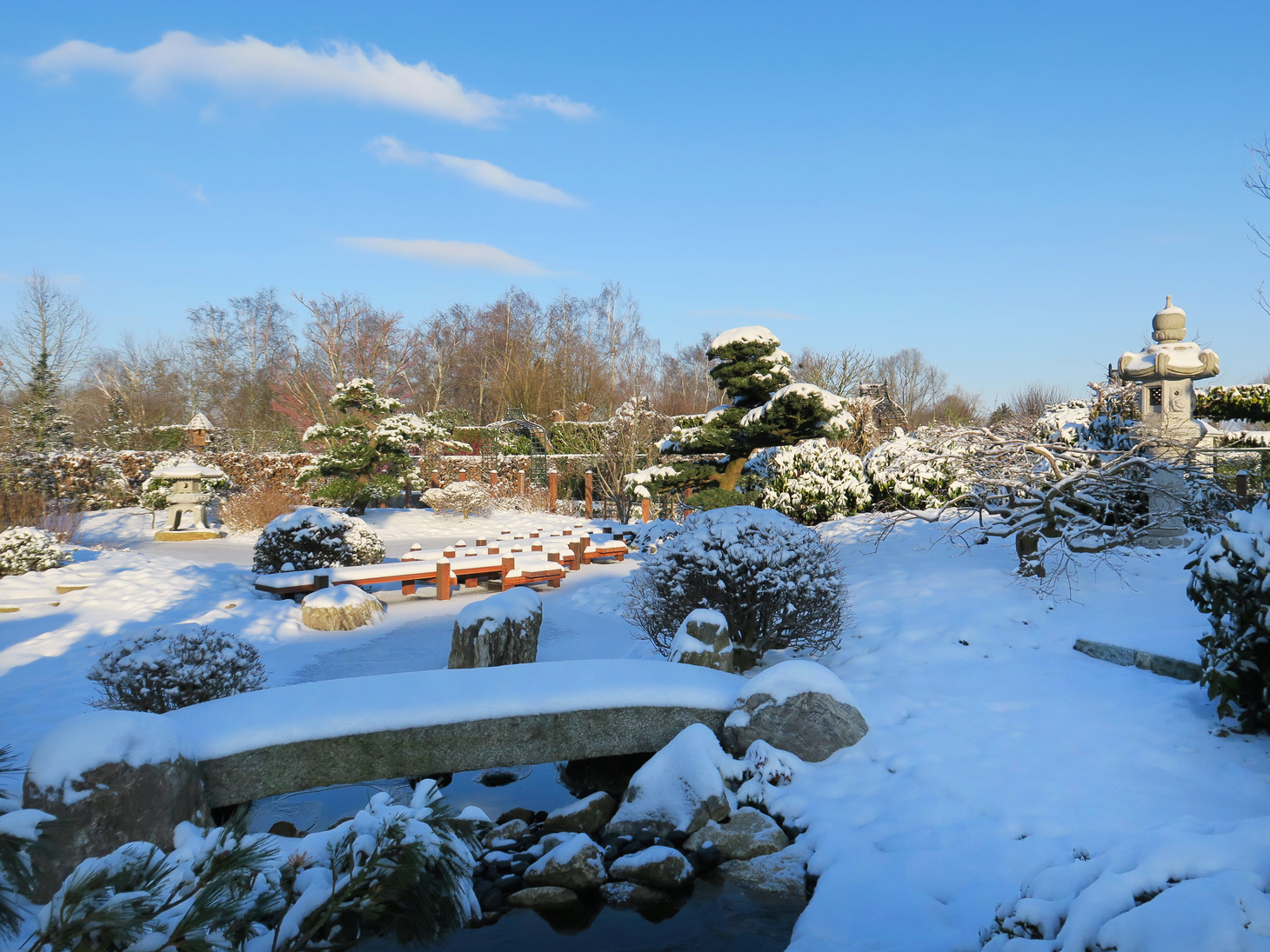









Contact Yokoso Japanese Gardens